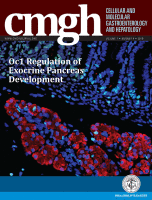
While the significance of the DNAJB1-PRKACA fusion gene in fibrolamellar carcinoma has been established and validated, the role of microRNAs (miRNAs) in FLC remains unclear. MicroRNAs have been implicated as drivers in many diseases including a variety of cancers. This study analyzed small RNA sequencing data to identify dysregulated miRNAs in FLC tumors and identified miR-375 as the most dysregulated miRNA. The study showed that over-expression of miR-375 mitigated the growth and invasive potential of FLC tumor cells. The study analyzed and validated the findings using a patient-derived xenograft model, CRISPR-Cas9 transfer of the DNAJB1-PRKACA fusion gene into mice, and a new FLC cell line.
Comparisons from patient samples between fibrolamellar carcinoma cells and adjacent normal liver tissue revealed that “microRNA-375 is almost completely lost in patients who have this disease,” according to Praveen Sethupathy, a senior author of the study. The researchers showed that the loss of microRNA-375 facilitates the growth of FLC tumors. “When it’s present it serves as a kind of brake on the ability of cells to grow, and when you lose it, that brake is gone and you get unchecked growth,” Sethupathy said.
Implications: These findings suggest a potentially new therapeutic approach for the disease. Further studies are needed to determine specifically how DNAJB1-PRKACA suppresses miR-375 expression and whether miR-375 has additional important targets in FLC.
The complete article can be read or downloaded by clicking here.
Note: This research was partially funded by a grant from FCF.
